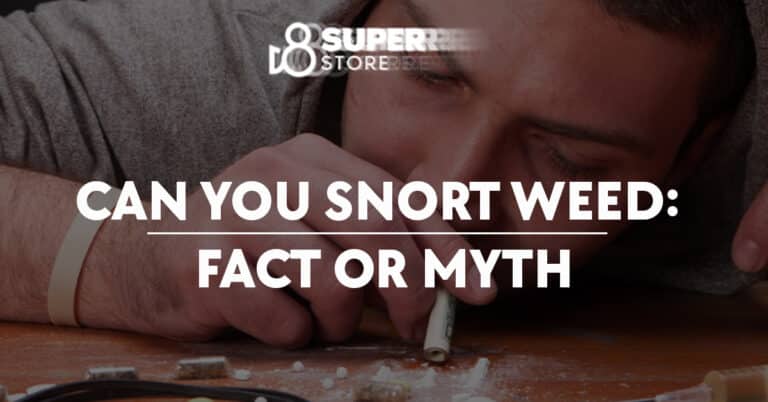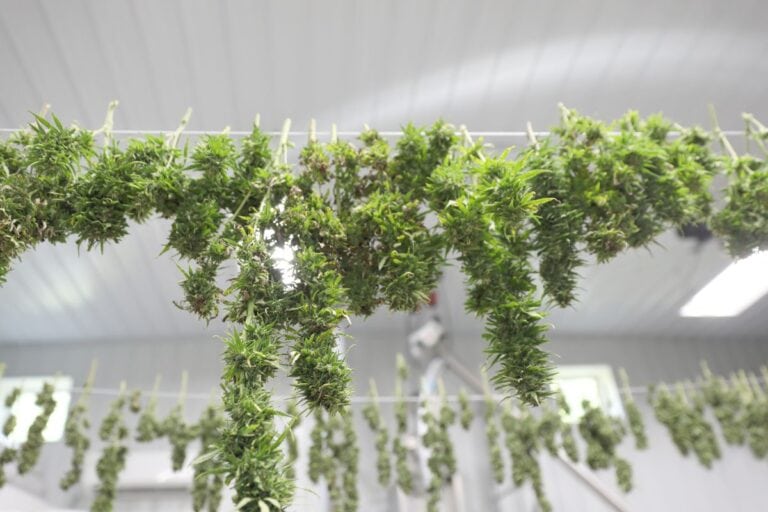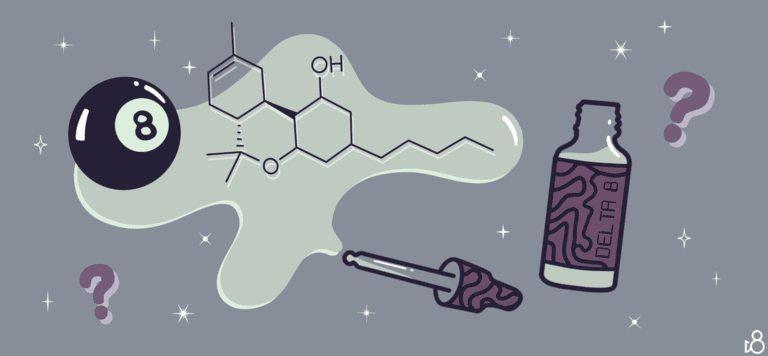Delta 8 THC Not Working? Understanding Tolerance and Product Quality
Dive into the chill universe of Delta-8 THC, the cool, easy-going relative of the famous buzz-bringer in cannabis, but it’s smoother and keeps things mellow. Thanks to the 2018 Farm Bill, this milder hemp buddy is totally legal to hang with, as long as it doesn’t pack more than 0.3% of its intense cousin, delta-9. Since it’s a rare find in nature, clever minds have unlocked the secret to extract delta-8 from hemp CBD. Now, you get to experience soft chills with top-notch vapes and delicious treats. Why is everyone whispering about it? Picture kicking back with all the fun but none of the fog, completely legit. Slide into a vibe where relaxation meets gentle exhilaration, and discover why delta-8 THC is the talk of the town.
Table of contents
However, there may be instances where you might find that delta-8 THC does not work as expected. While individual experiences with cannabinoids can vary greatly, the effectiveness of delta-8 THC can depend on several factors, such as the quality and purity of the product, your body chemistry, and your tolerance to cannabinoids. Moreover, because delta-8 THC products fall into a legal gray area, they are not regulated by the FDA, which means there’s no oversight to standardize their strength, composition, or labeling. This unregulated market can lead to variations in the products’ potency and, consequently, in their efficacy and safety, raising public health concerns.
Being informed about the differences between delta-8 THC and other cannabinoids like CBD and the more potent delta-9 THC is essential. Recognition that products like delta-8 THC can have varying chemical profiles due to the lack of standardization can help temper expectations. It’s crucial to approach such products with caution and consideration of potential risks, especially considering the legal and health implications surrounding their use.
Understanding Delta 8 THC
Before diving into the specifics, it’s essential for you to understand that Delta 8 THC is a cannabinoid similar to its more famous cousin, Delta 9 THC, but with subtle differences in chemical structure and effects. Legal complexities also surround its status due to the 2018 Farm Bill.
The Basics of Delta 8 THC
Delta-8 tetrahydrocannabinol, or Delta 8 THC, is a naturally occurring compound in cannabis, known as a cannabinoid. Chemically, it’s an isomer of THC, sharing a molecular formula but having a different arrangement of atoms.
- Psychoactivity: Delta 8 THC is psychoactive, yet it’s often reported to produce a milder high compared to Delta 9 THC.
- Occurrence: Naturally found in small amounts in the cannabis plant, Delta 8 THC is often manufactured from CBD derived from hemp.
- Accessibility: Since it can be derived from hemp CBD, it is more accessible in areas where cannabis is not legal.
Comparing Delta 8 and Delta 9 THC
When comparing Delta 8 THC to Delta 9 THC (the primary form of THC associated with cannabis), the differences may influence your experience.
- Potency: Delta 8 is generally less potent than Delta 9.
- Effects: Users have reported that Delta 8 provides a clearer high, less anxiety and paranoia, which is commonly associated with Delta 9 THC.
The draw to Delta 8 THC lies in its purported milder effects, making it a target for those seeking less intense outcomes while still wanting to experience the benefits of THC.
Legal Status of Delta 8 THC
The legal status of Delta 8 THC is somewhat confusing and constantly evolving. The 2018 Farm Bill legalized hemp-derived cannabinoids, which looped in Delta 8 THC, but not all states align with this federal stance.
- Hemp Definition: The Farm Bill defines hemp as a cannabis plant containing less than 0.3% Delta 9 THC.
- State Legislation: Individual states have the right to regulate or ban the sale and use of Delta 8 THC, leading to a patchwork legal landscape.
It’s crucial for you to check your state’s laws regarding Delta 8 THC, as its legality varies across the United States, and regulations are subject to change.
Delta 8 THC Consumption Methods

Delta 8 THC consumption varies widely, offering different experiences based on the method you choose. Whether you prefer the convenience of vaping or the longer-lasting effects of edibles, your options are diverse.
Vaping Delta 8 THC
When you vape Delta 8 THC, you’re typically using a vape pen or a disposable vape. These devices heat an e-liquid containing Delta 8 THC to create a vapor that you inhale. Vape pens can be rechargeable and often come with replaceable vape cartridges. The oil chamber in these pens is where the e-liquid is stored and heated. Vaping tends to deliver effects quickly since it enters the bloodstream via the lungs.
Delta 8 THC Edibles
With Delta 8 THC gummies and other edibles, the effects take longer to manifest but often last longer compared to vaping. Gummies are a popular choice and come in pre-measured doses, making it simple to manage your experience. When you ingest these products, they pass through your digestive system before the Delta 8 THC is metabolized by the liver, which can lead to a more prolonged impact.
Other Forms of Delta 8 THC
Apart from vapes and edibles, Delta 8 THC is available in various other formats like oils, which can be taken sublingually (under the tongue) for faster absorption into your bloodstream. There are also topicals for localized application, capsules, and tinctures. Each form provides a different onset time and duration of effects, allowing you to tailor your use to your personal needs and lifestyle.
Troubleshooting Delta 8 THC Vapes
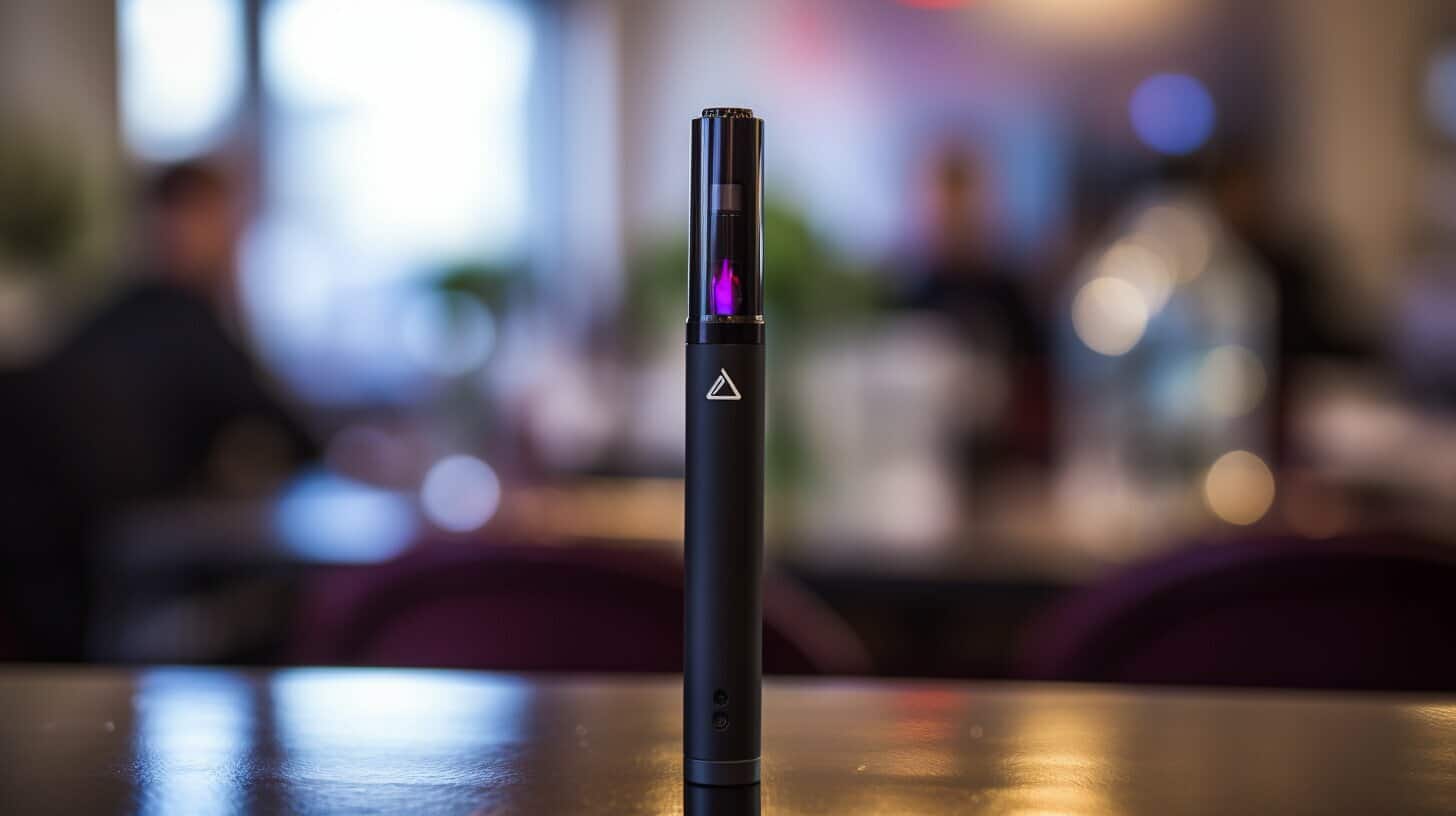
When your delta 8 THC vape is not working as expected, addressing common issues with the equipment and performing regular maintenance can often resolve the problem.
Common Issues with Vape Pens
Battery Problems: A dead battery is a frequent cause of vape pens failing to work. Ensure your vape’s battery is charged and that the charger and micro-USB port are not damaged. Voltage settings may also affect performance — check if your device allows voltage adjustments.
- Not drawing smoke: If there’s no smoke, check if the battery is connected to the atomizer properly. A loose connection can prevent the pen from operating.
- Burnt taste: This can indicate a spent coil or the wick might be dry. You might need to replace the coil or disassemble your vape if it’s cleanable.
- Air bubbles: Trapped air can prevent distillate from reaching the coil. Gently tap the device to dislodge bubbles.
Clogs and Leaks:
- Clog: A clogged device particularly in the airway or mouthpiece can obstruct the airflow. Use a q-tip to clean any residue.
- Leak: Check the tank for cracks or loose connections. Tightening components or replacing damaged parts can stop leaks.
Maintaining Your Vape Equipment
Regular Cleaning: Regularly clean your pen’s mouthpiece, button, and tank, especially if you notice clogging or residue. Use a q-tip or cloth with isopropyl alcohol to gently clean these areas.
- Proper Storage: Store your vape device in a cool, dry place to avoid exposure to extreme temperatures, which can cause leaks or damage the coil and wick.
- Coil and Wick Maintenance: Replace the coil and wick periodically to prevent a burnt taste and ensure smooth performance.
- Draw-activated Mechanics: For draw-activated pens, ensure the airway is clear and the sensor is not obstructed by residue.
- Disposables: With delta-8 disposables, once they stop working, they cannot usually be repaired. However, you should still check for a clogged mouthpiece or ensure there’s no airway obstruction.
By staying vigilant in identifying and addressing these common issues with your vape pen and maintaining your equipment, you can effectively troubleshoot most problems related to Delta 8 THC vapes. Regular maintenance is key to ensuring your device provides a reliable and enjoyable vaping experience.
Health Considerations and Safety
Before considering the use of delta-8 THC, it’s imperative to be aware of its potential health impacts and the importance of product safety. Delta-8 THC is a psychoactive substance, and like all psychoactive products, it carries risks and is subject to regulation.
Potential Risks and Side Effects
Delta-8 THC may produce effects similar to delta-9 THC (the primary psychoactive component in marijuana), but it is important to understand that product formulations can vary greatly. You should be cautious of therapeutic claims that are not supported by sufficient research. Adverse events associated with delta-8 THC can include anxiety, confusion, and sedation, and may be more pronounced in children and pets. While delta-8 THC is marketed as having a milder high, improper chemical synthesis and contaminants can lead to potentially harmful chemicals being present.
- Adverse event reports to poison control centers have increased with the rise in popularity of delta-8 THC products.
- Use of products in an uncontrolled or unsanitary setting may increase the risk of contamination.
Regulation and Quality Control
Regulatory oversight varies by jurisdiction, leading to inconsistencies in product labeling and quality. Federal and state partners are working to address gaps in the regulation of delta-8 THC products, which are often sold without proper health and safety standards in place.
- Always check for a verified Certificate of Analysis (CoA) for any delta-8 THC cart or product to ensure you’re not ingesting unknown and potentially dangerous substances.
- It is crucial to source your products from reputable suppliers that maintain high-quality production standards to avoid contaminants and exposure to uncontrolled or unsanitary settings.
The Science Behind Inefficacy of Delta 8 THC
When you explore the potential reasons behind the inefficacy of Delta 8 THC, it’s essential to consider both your individual experience and the scientific evidence that may explain why Delta 8 THC doesn’t always work as expected.
Reasons Delta 8 THC May Not Work
Delta 8 THC is a psychoactive compound that can produce various effects on your body and mind. However, several factors might contribute to its lack of efficacy:
- Product Quality: The market is flooded with Delta-8 disposables and other products where the quality varies greatly. Products with low-quality or insufficient amounts of Delta 8 THC might not produce the desired effects.
- Incorrect Dosing: Delta 8 THC requires proper dosing. Too little may have no noticeable effect, while too much might lead to undesirable outcomes. Finding the right dose for your body’s unique chemistry is key.
- Metabolic Factors: Your metabolism plays a crucial role in how Delta 8 THC affects you. Differences in metabolic rates and the functioning of the endocannabinoid system can lead to variability in effects.
Remember, to achieve optimal results, purchasing from reputable sources and understanding your dosing needs is important.
Building Tolerance to Delta 8 THC
Tolerance to Delta 8 THC can develop with regular and repeated use. This means you may need to consume more over time to feel the same effects:
- Repeated Exposure: Your body can become accustomed to Delta 8 THC with continuous use, which may lead to reduced sensitivity.
- Endocannabinoid System Adjustments: As your endocannabinoid system adjusts to the presence of Delta 8 THC, the efficacy may decrease, requiring higher doses to achieve previous effects.
Being mindful of the frequency of your usage can help you manage and prevent the development of tolerance to Delta 8 THC.
Enhancing Delta 8 THC Effects
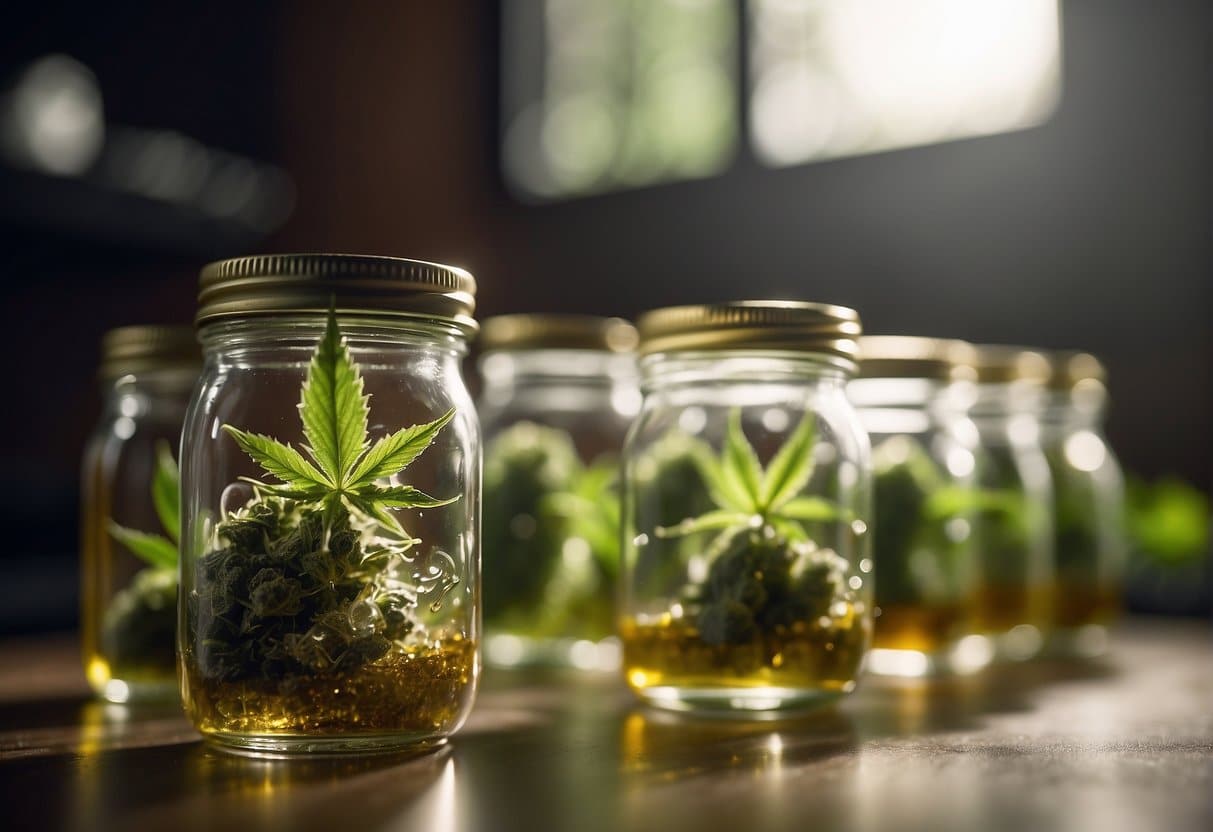
If you find that Delta 8 THC isn’t providing the experience you anticipated, there are ways to heighten its effects. The key is to focus on your method of consumption and to consider the purity and composition of the product you’re using.
Optimizing Your Vaping Technique
When vaping Delta 8 THC, the concentration can be affected by residue buildup which can lead to a burnt taste. Ensuring your vaporizer is clean will help maintain the potency and purity of the Delta 8 THC.
- Keep your vaporizer clean: Regularly clean your vaporizer to prevent residue buildup that can compromise the quality of vapor and flavor.
- Adjust the temperature: Vape at a lower temperature to avoid burning the Delta 8 THC oil, as high temperatures can degrade the terpenes and cannabinoids.
Alternative Methods for Delta 8 THC Uptake
Delta 8 THC is also available in various forms that may suit your preferences better and could enhance the effects.
- Edibles: Allow for a longer-lasting but delayed onset of effects, as Delta 8 THC is processed through your digestive system.
- Tinctures: Absorbed sublingually and can provide a quicker onset of effects compared to edibles.
- Topicals: Applied directly to the skin and are ideal for localized relief, although they may not provide the psychoactive effects you’re looking for.
Considering the terpene content of your Delta 8 THC products is important. Terpenes can influence the effects and improve the overall experience by providing a more complex profile of benefits. Look for products with a high terpene concentration to enhance both the flavor and potential entourage effect.
Conclusion
Delta-8 THC has grown in popularity due to its similarities to Delta-9 THC, the primary psychoactive compound in cannabis. Despite this, your experience with Delta-8 THC may not always meet expectations. It’s essential to understand that the effects can vary widely among individuals.
- Biological Factors: Your unique biochemistry plays a role in how Delta-8 THC affects you, which might explain limited effects.
- Product Quality: The market is flooded with an array of Delta-8 products, and some may have inconsistent potency levels.
- Tolerance: If you have a high tolerance to cannabinoids, Delta-8 THC’s effects might be more subtle for you.
Scientific studies, such as the Behavioral Effects of Vaporized Delta-8 Tetrahydrocannabinol, are beginning to explore its impact, but much is still unknown. It’s also important to note the lack of regulation can lead to varied chemical compositions in products.
- Legality: Be aware that the legal status of Delta-8 THC can influence the quality and availability of products you have access to.
Current Research Highlights:
- Lack of clarity on effects
- Need for further investigation
- Tolerance issues
- Quality control concerns
Remember to consider these factors and approach Delta-8 THC with caution and awareness. Always ensure you’re obtaining products from reputable sources to ensure the highest chance of efficacy.
Frequently Asked Questions
When using Delta 8 THC products, you might encounter some issues affecting potency and functionality. Below are targeted solutions for common concerns regarding Delta 8 THC items.
What could be the reason my Delta 8 THC gummy’s effects seem to have lessened over time?
If the effects of your Delta 8 THC gummies have lessened, it might be due to increased tolerance. Take a break from consumption to reset your tolerance levels.
How can I troubleshoot my Delta Extrax disposable if it’s failing to function?
Ensure the battery is charged and the device is properly activated. If issues persist, check the contact points and ensure the cartridge is not blocked or disconnected.
What steps should I take if my Cake Delta 8 device is not lighting up?
First, charge your device to ensure it has power. If there’s no response after charging, inspect the device for any physical damage or connectivity issues.
Why might my brand new disposable vape pen not work right out of the package?
Check that there’s no factory seal or packaging obstructing the device’s usage. Sometimes, a simple protective cap or sticker is the culprit, preventing the battery from activating.
Is there a way to fix a Cake Delta 8 rechargeable disposable device that won’t operate?
Try connecting the device to a charger and look for any indication of it receiving power. If the device is unresponsive after charging, the battery or internal components may be faulty.
What are common solutions for unclogging a Delta 8 THC disposable vape pen?
Gently warming the device can help to liquefy any blockages. Use a hairdryer on a low setting or roll the pen in your hands to generate heat. Ensure you don’t apply direct heat to the device, as this could cause damage.



